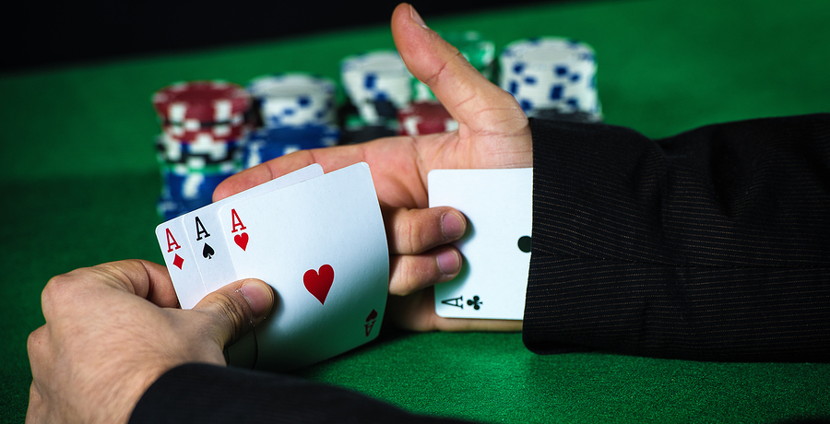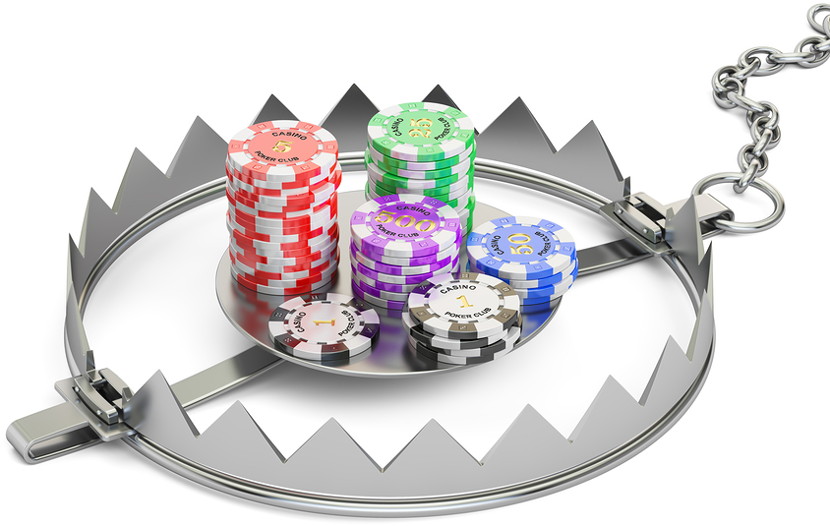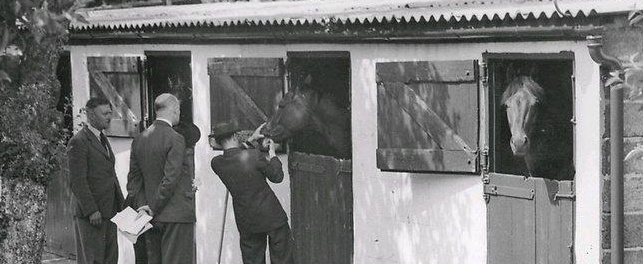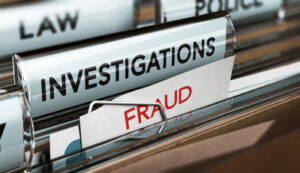 At some point or another, we’ve probably all dreamt of winning the lottery or hitting a mega payday with one of our bets. There’s no question that plenty of us have a flutter every now and then because we enjoy the challenge, or because it makes a sports event we’re watching more interesting.
At some point or another, we’ve probably all dreamt of winning the lottery or hitting a mega payday with one of our bets. There’s no question that plenty of us have a flutter every now and then because we enjoy the challenge, or because it makes a sports event we’re watching more interesting.
Yet it’s difficult to argue that there isn’t also an extent to which we want to win money. After all, if that weren’t the case then we’d surely just limit our wagers to ones we can make with free bet welcome offers or use casinos that offer a ‘fun play’ mode, where no cash is exchanged.
Only the vast majority of us don’t do that, because the chance of winning enough money to make our lives a little bit easier is too tempting. What happens, then, when the temptation rolls over from slight to overwhelming? What do those that have a natural inclination to lean towards the unsavoury side of life do when they see an opportunity to defraud a bookmaker or a casino? Worse, what about when a casino or bookie decides that the natural house edge isn’t enough and they choose to defraud their customers?
There have been some big cases of fraud involving the gambling industry over the years, so we’ve decided to take a closer look at them.
What is Gambling Fraud?
 There’s a difference between fixing a match, such as when a boxer is told to hit the deck in a specific round in order to give those in the know the chance to win money by betting on it happening, and fraud or theft. Match fixing is a type of fraud, of course, but it’s one that deserves its own conversation, so we’ve done just that on a different page of this site.
There’s a difference between fixing a match, such as when a boxer is told to hit the deck in a specific round in order to give those in the know the chance to win money by betting on it happening, and fraud or theft. Match fixing is a type of fraud, of course, but it’s one that deserves its own conversation, so we’ve done just that on a different page of this site.
What we’re talking about is when punters have gone out of their way to defraud a casino or bookmaker out of money with no involvement from anyone involved in the sports or events that they’re betting on. The big difference between that and match fixing is both the involvement of an ‘inside man’ and the fact that match fixing is most commonly carried out by groups rather than individuals.
There are also times when the casino or bookmaker has been the one doing the defrauding. This can be as simple as rigging slot machines to pay out less or as complex as skimming more from the entire range of games in the casino, but the end result is more money being obtained by the institution than the customer. We’ll have a little look at all types of fraud and theft, exploring what happened and what the repercussions were.
Players Stealing From Casinos

Let’s start with the type of fraud that has led to countless film and TV show plots: customers conning the casinos. If you’re not sure what we’re on about then think ‘Ocean’s 11’ and that should help to clarify things.
There have been some genuinely impressive scams performed over the years, so we’ll have a look at some of them here.
Richard Marcus
The self-proclaimed ‘World’s #1 Casino and Poker Cheating Expert’ was so good at what he did that he was able to set up a business on the back of it, teaching other would-be cheats how to scam and get away with it. Not bad for a man who was once homeless on the streets of the Las Vegas strip. He was given a job as a croupier at one of the casinos and realised that he could make bets in such a way that he could fool the dealers into thinking that the bet was smaller than it was.
At the time $5 chips were red and $500 chips were brown, so Marcus would put the brown one on the bottom in such a way that the dealer would think it was red. If his bet won he’d reveal that is was for $510, if it lost he’d use slight of hand to replace the brown chip with a red one and dealers would be none the wiser. The scam lasted for years and it’s believed that Marcus took millions of dollars from the Las Vegas casinos. When he was eventually caught he was prosecuted and banned from casinos for life.
Gonzalo Garcia-Pelayo
It’s not a bad claim to fame to have been that good at cheating that you forced the casinos to change the way that they operate. Nevertheless, that’s a claim that Gonzalo Garcia-Pelayo can make, thanks to the method he came up with to win money on the roulette wheel. Once a record producer in Spain, Garcia-Pelayo believed that roulette wheels were not actually entirely random. He recorded hundreds of hours of roulette spins and used a computer to analyse the results, learning that some numbers came up more often than others.
The first night he ever put his theory to practice he won more than €600,000 in a casino in Madrid. Naturally his next step was to head to Vegas, where he went on to win in the region of $2 million. The casinos discovered what he was up to and banned him for life. He didn’t believe he was doing anything wrong and took his case to the United States Supreme Court, who declared that he hadn’t done anything illegal. Casinos didn’t lift their ban on the Spaniard, but they did change the way that they monitor and test the randomness of their roulette wheels.
MIT Blackjack Team
Later made into a film with Kevin Spacey, the MIT Blackjack Team might well be the most famous casino defrauders in the world. They worked as a team to count cards in blackjack, coming up with a system that was flawless and a method of communication that was undetectable.
If you’d like to learn more about what they did and how they did it then the film mentioned a moment ago is ’21’ and it’s well worth your time.
The Laser Scanners
In The Ritz Casino in London in 2004, a group of gamblers from Siberia and Hungary used laser scanners built into their mobile phones to con the casino out of more than £1 million. The phones were all linked to a computer that was able to determine what is known as the ‘decay rate’ of the spinning roulette ball, informing the gang members of the rough sector of numbers that the ball would drop into.
Given the speed at which the computer was able to make its calculations regarding the fall of the ball, the group were able to place their wagers before it went on its final rotation and the dealer called ‘no more bets’. They were caught, but ‘sector targeting’ isn’t actually illegal so the casino owners were unable to prosecute them to get their money back and the gang was allowed to keep it.
Casinos Stealing From Players

There are countless more examples of individuals or small groups doing their best to get one over on the casinos, but we have limited space and have plenty more to tell you in this article.
For every story that exists about a customer trying to con a casino, there are counter examples of casinos giving themselves an extra edge in their batter against the customer. Here are some of the more interesting examples.
The Near Miss Scam
Slot machines work courtesy of a Random Number Generator program, or RNG. The idea is that every spin is random, with the mathematics in place ensuring as much. The programming can be altered by the casino to give them a slight edge in terms of payouts, but some casinos used to push their luck in that sense. The machines would be programmed to land on a ‘near miss’ regularly, encouraging the player to believe that they were getting close to hitting the jackpot.
When inspected by independent adjudicators, it appeared that some slot machines were landing on a ‘near miss’, when the symbols were close to lining up perfectly, significantly more times than the jackpot was being hit. In some instances this was as many as a thousand times more. Obviously that wouldn’t happen if the result was genuinely random. As a result, the ‘near miss’ is illegal in Nevada casinos and many others around the world.
The American Coin Scandal
This particular scam happened in Nevada back in the 1980s. It entered around a selection of slot machines and video machines owned and operated by the company American Coin, located in casinos through Las Vegas. The company had programmed its machines to stop gamblers from being able to win the top prize in video poker or from hitting the jackpot when playing Keno and other games.
This was an instance where players were being directly cheated out of being able to win the advertised prize. The Nevada gaming commission seized more than 1000 of American Coin’s machines and the company was eventually fined $1 million. This also led to a significant change in the rules regarding the regulation and inspection of slot and video machines by the Nevada Gaming Control Board.
AbsolutePoker
Montreal, Quebec. It’s 2007 and an online casino named AbsolutePoker is hosting a poker tournament, just like millions of others played around the world at any given moment. For 21-year-old Marco Johnson, things were going quite nicely, given that he reached the final table and stood a chance of winning a $30,000 prize. However, Johnson soon noticed that the hands being played were quite erratic, as was some unexpected play from participants. He didn’t win and after the tournament requested a printout of all of the hands he played from AbsolutePoker.
Instead of only sending him his own hands, the company sent him a detailed printout of all hands played throughout the tournament, complete with the IP addresses of all participants. Johnson did some digging and noticed that the tournament’s eventual winner, who played under the name Potripper, would make different decisions in his play depending on whether another played, named #363, was on the table with him.
Further research revealed that Potripper’s IP address belonged to AJ Ripper, the former AbsolutePoker Director of Operations, whilst #363 was the address of the company’s co-owner, Scott Tom. It’s believed they took between $500,000 and $1 million from the casino’s customers by being able to see the hands every poker player hand during a game.
Customers Stealing From Bookmakers

For as long as gambling has been something that people could do, there has been an element of society that has tried to get one over on those offering the odds.
Casino cheats are often elaborate and complex, but what of the cheats that are carried out by punters on bookmakers? Are they more simplistic, or even more complicated?
Operation Crock Of Gold
Perhaps one of the best known examples of an attempted con at the expense of bookmakers came about in 1974 and was admired for its complexity once it was discovered. It involved a pair of similar looking horses, one of which had no ability whatsoever but paperwork identifying it as Gay Future, whilst the other was the real Gay Future and was being trained to ensure it would win the race at the Cartmel course in the Lake District with ease.
The fake Gay Future was sent to the Lakes ahead of time and wasn’t even remotely fancied by bookies, whilst the real one was kept in a horse box near the course and swapped out on the day. Led by an Irish millionaire named Tony Murphy, the gang involved knew that their horse would win and placed a series of bets at bookmakers throughout London, matching them up with bets on two other horses trained by Tony Collins, in order to avoid the bookies getting suspicious.
In truth, however, the other two horses were never going to run in the races they were down for, meaning that the bets would be shifted onto Gay Future when they were withdrawn. Unfortunately for the gang, the whole operation came unstuck when a journalist from a racing newspaper called Collins’s training centre and was told by an unwitting stable hand that the two other horses had never left the yard. Authorities realised what the con was and they were all rumbled. If you’d like to know more about this story, it was later made into a film called Murphy’s Stroke, starring Pierce Brosnan.
Gomer Charles
Swapping horses wasn’t a new thing, even in 1974. In fact, it had been attempted in a similar fashion more than twenty years before. Back then it was by a man named Gomer Charles who, like Tony Murphy, had a series of co-conspirators standing by around the country ready to place bets on the Spa Selling Hurdle Plate at Bath Racecourse. They were placing their bets on an unknown and unfancied French horse named Francasal.
What the bookies didn’t know was that Francasal (image above right) had been replaced by a similar looking horse called Santa Amaro (image above left), which was also French but was decidedly faster and a much more accomplished horse. It’s entirely possible that the crew would have got away with their deception, but for the fact that they’d employed someone to climb a latter and ‘cut’ the phone line to the track that off-course bookmakers used to communicate with those on-sight regarding the fact that they’d accepted big bets on a horse, which would have seen its odds come down.
The horse won the race easily at odds of 10/1, but bookmakers grew suspicious about the incident and refused to pay out on the bet. The case went to court and Charles was eventually sentenced to two years in prison, with three co-conspirators also being given a jail sentence. A tragic end to this story occurred in 1966, when Mr. Charles was shot dead by two burglars who turned up at his door in the hope of robbing him.
Bookmakers Stealing From Customers

The problem with stories about bookies conning their clients is that everyone feels they’ve been conned when their bet loses. This inevitable brings up the question: what does a ‘con’ from a bookmaker entail? Is it, for example, when they refuse to payout on a bet for some reason? Or is it more to do with specifically misleading punters?
Megan McCann
In 2016 a then teenager named Megan McCann placed 960 bets on twelve obscure races taking place in Bath, Kempton and Naas. They were ‘Lucky 15’ accumulator bets, with Miss McCann placing an overall stake of £24,960 on the races. All of the races won, which should have resulted in winnings of £985,000 being paid out to Miss McCann, as well as the return of her original £24,960.
Bet365, the company that the then nineteen-year-old placed the bet with, refused to pay out or return her original stake. They claimed that her bet was in breach of a ‘no third party’ rule, which is buried in their terms and conditions, stating that all money for a bet must be supplied by the person placing it and that that wasn’t the case with Miss McCann and her bet. Is this, then, an example of a bookmaker conning their customers, or simply sticking to the letter of their own rules?
Closing Down Accounts
Another example of questionable behaviour from bookies comes in the form of accounts being limited or closed down. This tends to happen to punters that have been successful, with major wins being followed by emails from the online companies that they placed their bets with informing them that the amount of money they’ll be able to bet with is being restricted to as little £2.
In more extreme cases, some bookmakers will simply close down accounts altogether, stopping punters from being able to place any bets at all on anything. This happens simply because they’ve got lucky with a series of bets and won more money than the company’s ‘Trading Team’ believes is a fair amount for them to lose. Again, is this a con? Is it the bookmakers engaging in unfair practices, or is it simply them protecting themselves and their profit margins? A tricky one to decide.
Unlicensed Operators
Although in the UK we have one of the most open gambling markets in the world it is also one of the best regulated. Operators need licenses issued by the Gambling Commission to offer bets to UK customers either in shops or online, not matter where they are based. To get and keep thee licenses companies must demonstrate that they offer safe and responsible gambling and also that they check where money comes from to prevent fraud.
This all works to make betting in the UK about as safe as it can be, it also means you have a legal discourse should you ever believe you have been defrauded (see later). If however you choose to bet with an unlicensed bookie or casino and they steal from you there is almost nothing you can do. This happens every single day and the only way to ensure you are protected is to check they are licensed to operate. All of our recommended betting sites are UK licensed and trustworthy.
Gambling Fraud and Theft In The Future
 Bookmakers are forever coming up with new and more modern ways of avoiding being defrauded. The problem that they’ve got is that those that would do the defrauding are coming up with equally as as modern and intelligent ways of getting one over on the industry. How, then, will things work out in the future?
Bookmakers are forever coming up with new and more modern ways of avoiding being defrauded. The problem that they’ve got is that those that would do the defrauding are coming up with equally as as modern and intelligent ways of getting one over on the industry. How, then, will things work out in the future?
One of the interesting things will undoubtedly be the use of social media. We have seen in recent years how ‘bots’ have been used on the likes of Twitter to spread fake news and influence the coverage and understanding of political events. What might happen if these computerised social media ‘users’ start to spread rumours about team selections in football, for example, or injuries in tennis?
Bookmakers might well raise the odds of a team or player winning if it appears as though they’re not going to be able to perform at the peak of their ability, giving fraudsters a chance to place high bets on them. Only when the true team is announced or the player take to the court will prices drop to reflect that, but by that point the fraudsters will already have made their bets. Could that be the future of fraud in the gambling industry?
The shift from betting in person in betting shops to betting online on websites is surely likely to aid the fraudsters more than the bookmakers or casinos. In the example given before of the gang that took over a million from a London casino, they used lasers to track the motion of the roulette ball. Won’t intelligent fraudsters be able to design similar devices to figure out the movement of the ball in a game of online roulette, or to track the hands in a blackjack game?
What To Do If You Think You’ve Been Defrauded
 In the United Kingdom, the UK Gambling Commission has a strict set of rules and regulations that bookmakers and casinos must adhere to if they want to receive a gambling licence.
In the United Kingdom, the UK Gambling Commission has a strict set of rules and regulations that bookmakers and casinos must adhere to if they want to receive a gambling licence.
We would always recommend that you only place bets with casinos that have a UK Gambling Commission issued licence and speak to the UKGC immediately if you feel that the casino you use is breaking the rules. If you bet with an unlicensed bookmaker or casino then there are virtually no protections in place for your money or your information.
Obviously one of the first things you should do in any instance is contact the bookie directly. It’s entirely possible, especially if it’s an online company, that the computer system isn’t working properly and a brief chat with them will sort everything out. Failing that, however, you can contact The Independent Betting Adjudication Service (IBAS), who will investigate any complaints made about a bookmaker and ensure a fair outcome. Failing that you could always contact the Advertising Standards Authority if you feel you’ve been misled, or the Association of British Bookmakers.
In short, there are numerous things to do before feeling that you’ve ran out of options.